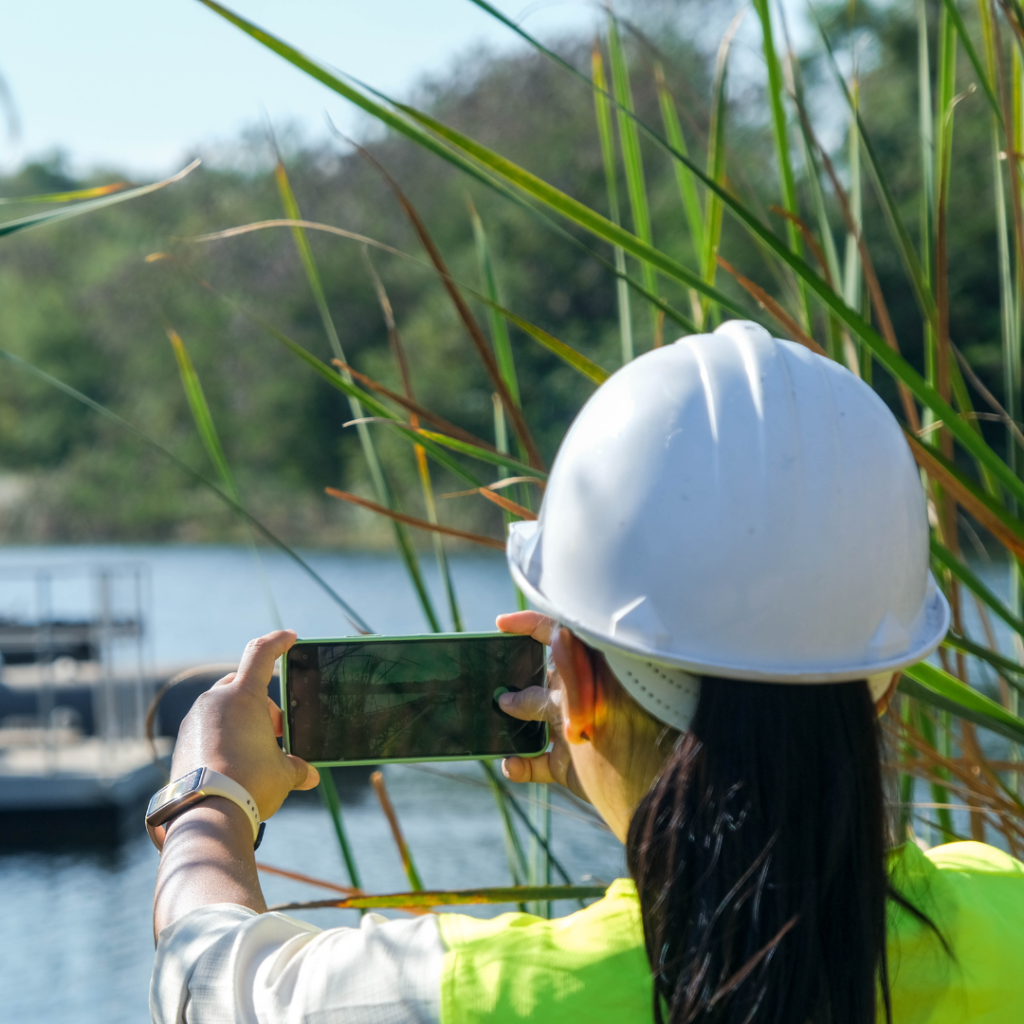5 Best Grad Schools with Online Doctorate in Science Education

Find your perfect college degree
In this article, we will be covering...
Doctoral degree programs in science education are designed for professionals passionate about teaching science and having a strong educational background in the sciences. Science education doctorate program prepares students for advanced careers in teaching and research.
Although doctoral programs are challenging, graduates will have various opportunities to impact science education and significantly influence how students learn science in the future.
The Labor Statistics Bureau (BLS) reports that obtaining a doctorate increases your annual salary from your career.
Overview
Doctor of Education (EdD) and Doctor of Philosophy (Ph.D.) online programs in Science Education are terminal degrees that concentrate on training researchers and teachers to become authorities in science education.
Online Ph.D. and EdD programs follow the same on-campus curriculum, aiming to produce professionals with a profound understanding of science teaching and learning, curriculum creation, educational policy, and academic research methodologies. Online doctorates integrate advanced coursework, research, and practical experiences.
Methodology
Each of the Best Doctorates in Science Education degree programs followed these criteria:
- Offers online coursework designed to cater to the busy schedules of working education professionals,
- Provides easy access to online learning platforms, most of which allow doctoral students to access coursework 24/7,
- Holds regional accreditation, ensuring that graduates will be highly valued in all academic settings,
- Taught by a distinguished science faculty with years of expertise enhancing the field of science,
- Provides optional or required on-campus intensives that promote learning of practical teaching skills and classroom management strategies,
- Allow students enrolled in online learning to apply for financial aid,
- Offers courses that help equip students with the abilities necessary to integrate technology into science education to enhance teaching and student engagement.
Please check out our Methodology to learn more about our ranking process.
Top 5 Grad Schools with Online Doctorate in Science Education
Indiana University Bloomington

Doctor of Education in Curriculum and Instruction: Science Education
Indiana University’s online EdD in Curriculum and Instruction is a 100% online, 60-credit hour doctorate that offers a Science Education concentration for professionals who want to focus on instructional practices in K-12 schools.
This online program is designed for master’s-level science instructors, allowing graduate students to use research-based ideas in real-world scenarios. Students can pursue additional courses beyond the required core and specialization to further their understanding of the subject matter.
Critical thinking, teamwork, and a thorough awareness of the difficulties and possibilities in science teaching are all emphasized in the curriculum. Students must pass a qualifying exam and the required coursework to earn the doctorate.
Near the completion of exams and required core courses, online students will have a one-on-one session with an academic advisor to discuss their dissertation plans.
To qualify for the online doctorate program at IU, applicants must have a bachelor’s and master’s degree from an accredited college/university with a 2.75 or higher GPA. Additional admission requirements include official transcripts, a personal statement, and two letters of recommendation.
University of Miami

Doctor of Education in Applied Learning Sciences
The University of Miami offers an online EdD in Applied Learning Sciences that can be completed in 2.5 years. As an Applied Learning Sciences specialization, this doctoral program allows students to focus on applying scientific concepts and research findings to improve learning and education in various subjects, including science education.
Graduates can further pursue informal education environments. This interdisciplinary degree incorporates theories and techniques from psychology, cognitive science, neuroscience, education, and other related fields.
Featured courses of the program include Design of Online Learning Environments, Design for Out of School Learning Environments, and Research and Learning. Instead of 8-week and 15-week courses, Miami’s online EdD program utilizes fast-paced 7-week courses, allowing students to graduate faster than traditional doctorate degrees.
To earn the degree, students must complete a cumulative project; this project involves a collection of published or publishable research papers or articles rather than a single monolithic dissertation.
Prospective students must have an accredited master’s degree earned from a reputable higher education institution. There’s no GPA cut-off, and it does not require GRE results. Additional admission requirements include an unofficial transcript, a résumé, and a personal statement.
Western Michigan University

Doctor of Philosophy in Science Education
Western Michigan University’s online Ph.D. in Science Education is among the best online Ph.D. programs for interested students with no science education background. Students wanting more in-person interaction can enroll in the hybrid delivery format.
Either way, students enrolled fully or partially online will be prepared to work as science professionals in various academic settings, including two-year community colleges and four-year college professors. They can also pursue careers in the informal sector of education.
WMich’s online science education doctorate is one of the most customizable doctorates, having three tracks: College Science Teaching (CST), College Science Teaching with Discipline-Specific Research Focus (CST/DRF), and Science Curriculum & Instruction (K-12).
Track availability allows students to align their degrees with their professional goals. Nevertheless, students in each track will undergo a curriculum that helps them understand pertinent issues in cognitive psychology and cognitive science and the major research traditions in science education.
Admission requirements will vary, depending on the student’s track. Students pursuing the CST track must have a master’s degree majoring in science or education. Students interested in the CST/DRF track must have a master’s degree with the appropriate science concentration.
Students who have yet to graduate with their master’s degree can still submit their application as long as they’re in their last term of classes, but they will be required to study on-campus in the meantime.
Columbia University

Doctor of Education in Science Education
Offered in a hybrid learning format, Columbia University’s EdD in Science Education allows students to study in a collaborative and highly engaging doctorate degree program. The program requires students to complete a minimum of 90 course points, which includes topics in general science, science education, research methodology, technology management, and one dissertation study.
Students must also enroll in a minor in a chosen field to earn extra points for graduation. Each student will have a one-on-one consultation with an academic advisor to choose their extra points.
As one of the first programs in the country in science education, students who choose Columbia should expect to undergo a rigorous evidence-based practice curriculum. Topics of the program include Quantitative and Qualitative Methods in Science Education Research, Curriculum and Pedagogy in Science Education, and Critical Voices in Teacher Education.
Graduates will become experts in education and science fields with adept knowledge of scholarly analysis approaches, science principles, and more specific areas.
Interested students must have a master’s degree from an accredited institution. Supplemental requirements include transcripts and two letters of recommendation.
University of Colorado Denver

Doctor of Education – Leadership for Educational Equity, Science Education
Students interested in developing competencies for educational leadership positions can pursue the EdD in Leadership for Educational Equity in Science Education at the University of Colorado Denver. This is a 54-credit hour program that requires students to move in cohorts, opening its enrollment doors in the summers only.
This doctorate degree is completed in a hybrid learning format—students should be able to attend on-campus courses each semester.
This doctoral program comprises a rigorous curriculum with coursework, seminars, and practical experiences. Students may look into subjects including theories of educational leadership, policy analysis in education, cultural sensitivity, and social justice in education.
UC Denver allows students to collaborate with distinguished faculty, national grant-making organizations, and district partners in doing research dedicated to school improvement, reform, and educational equity.
Interested students should have a minimum GPA on all their undergraduate and graduate coursework. Previously earned degrees should be from regionally accredited colleges/universities. Additional requirements include official transcripts, letters of recommendation, a statement of purpose, and a writing prompt.
Accreditation
Accreditation is the first thing you should consider when looking into a doctorate degree program, whether online or on-campus. Regional accreditation is the most prestigious accreditation of a higher education institution.
Colleges and universities with regional accreditation ensure that students receive a high-quality education. This indicates that the courses and faculty have a solid track record of having good student outcomes.
These accrediting bodies are independent agencies accepted by the Council for Higher Education Accreditation and the US Department of Education. They are in charge of assessing and guaranteeing the caliber and standards of educational institutions within particular geographical areas of the nation.
A degree from an accredited institution is also required when sitting for exams and licenses in any field and applying for higher-level positions. This might also affect how your research gets published.
The following are the regional accrediting organizations and lists of states they cover:
- Middle States Commission on Higher Education (MSCHE)
- Delaware
- District of Columbia
- Maryland
- New Jersey
- New York
- Pennsylvania
- Puerto Rico
- New England Commission of Higher Education (NECHE)
- Connecticut
- Maine
- Massachusetts
- New Hampshire
- Rhode Island
- Vermont.
- Higher Learning Commission (HLC)
- Arizona
- Arkansas
- Colorado
- Illinois
- Indiana
- Iowa
- Kansas
- Michigan
- Minnesota
- Missouri
- Nebraska
- New Mexico
- North Dakota
- Ohio
- Oklahoma
- South Dakota
- West Virginia
- Wisconsin
- Wyoming
- Northwest Commission on Colleges and Universities (NWCCU)
- Alaska
- Idaho
- Montana
- Nevada
- Oregon
- Utah
- Washington
- Southern Association of Colleges and Schools Commission on Colleges (SACSCOC)
- Alabama
- Florida
- Georgia
- Kentucky
- Louisiana
- Mississippi
- North Carolina
- South Carolina
- Tennessee
- Texas
- Virginia
- WASC Senior College and University Commission (WSCUC)
- California
- Hawaii
- Pacific territories
Doctor of Science Education Curriculum and Courses
Doctorates in Science Education include required courses, specialized classes, and a broad science education curriculum. While course titles differ, here are some of the most common topics you’ll encounter in EdDs/PhDs in science education:
Foundations of Science Education
This basic course gives students an overview of the background, principles, and philosophies of science education. It examines the main ideas and tenets that guide scientific instruction and the learning process.
Curriculum Development in Science Education
This course explores the ideas and procedures for developing and assessing science curricula for diverse educational contexts. It often prioritizes the alignment of the curriculum with academic standards and industry-accepted best practices for science education.
Instructional Strategies in Science Education
This course will teach students the best pedagogical practices and instructional methods for science instruction. It might touch on problem-solving techniques, inquiry-based learning, and the use of technology in science classrooms.
Educational Leadership and Policy in Science Education
This course helps students understand the influence of educational leaders on the development of the educational system’s leadership policies about science teaching and learning.
Assessment and Evaluation in Science Education
The main topics of this course are the creation and use of clinical evaluation of assessment techniques to gauge science student learning outcomes. It covers strategies for analyzing and interpreting assessment data and formative and summative evaluations.
Science Teacher Professional Development
Students investigate methods for assisting science instructors’ professional growth, such as coaching, mentoring, and reflective practices.
Science Education and Equity
This course focuses on developing inclusive and culturally sensitive learning environments to address diversity, inclusion, and equity issues in science education.
Advanced Topics in Science Education
Doctoral programs often have advanced and specialized topics. For science education, specialized topics may explore science communication, STEM education, environmental education, or technology integration into science classrooms.
Educational Research Methods
This course explores topics that help students with their dissertations or research projects. It teaches students how to plan and conduct educational research in the science teaching framework. This course includes research design, data collecting, statistical analysis, and qualitative research techniques.
Dissertation Research
The most crucial aspect of any doctorate degree is conducting research. Students aim to write a thorough dissertation to demonstrate expertise and support their position as experts in their respective fields. Students collaborate closely with faculty members and peers to plan and carry out their research projects.
Admission Requirements for Online Doctorates in Science Education
Each program will have its own set of admission requirements and procedures. However, there are few common admission requirements doctoral degree programs require from their applicants.
Application Fee
Most programs require students to pay an application/processing fee. The cost will vary but typically ranges from $50 to $80.
Educational Background
Because these are terminal degrees, they expect applicants to have a master’s or specialist degree in education, science education, or any related discipline from an accredited institution. Doctorates build on students’ graduate-level knowledge.
Professional Experience
Some science education doctoral programs could demand that applicants have relevant professional experience working in the field of science education. Professional experience includes teaching, developing curricula, or holding leadership positions in educational institutions.
Academic Transcripts
To showcase your dedication and ability to succeed in a doctorate, you must submit official academic transcripts from your undergraduate and graduate degrees, including attempted coursework.
Letters of Recommendation
Letters of recommendation can also be a solid basis for your dedication to the field. This will help the admissions committee evaluate your academic prowess and professional experience. LORs should be written by someone knowledgeable and respected in the field, such as your advisor, manager, or other superior.
Statement of Purpose
A statement of purpose allows you to discuss how the program fits your aspirations and academic and professional goals. You can stand out from the many applications that colleges get by having a compelling statement of purpose.
Resume/CV
A resume/CV is required for almost all graduate programs. A curriculum vitae (CV) or resume details your educational background, career history, research experience, internships, volunteer activity, and academic accomplishments. A graduate school CV needs to make a good first impression right away.
Standardized Test Scores
If you don’t already have a master’s degree in education or a closely related discipline, some programs might ask for GRE scores. However, many institutions are ceasing to require GRE scores for enrollment in doctorate programs.
Interview
Doctorate programs often require an interview. Some are conducted online, while others demand you to visit the campus. This is your time to meet the prospective department, review your project, and demonstrate your scholarly abilities.
Career Paths for Online Science Education Doctorates
Earning a Doctorate in Science Education opens up various career opportunities in the fields of education, research, leadership, and policy. Here are some potential career paths you can pursue with a doctorate in science education:
Faculty Member at a Research-Oriented University
Research-oriented universities hire effective teachers who are actively involved in cutting-edge research in their specialties. Because doctorate degrees are designed to produce graduates capable of teaching and doing research, you will be more suitable in this environment.
As a faculty member, you’ll often do research for field advancement, collaborate with other researchers, and publish your research findings in scholarly journals.
Curriculum Developer
Doctorate degrees in science education equip students with the necessary abilities to improve the field. As a curriculum developer, you can work in secondary and postsecondary to formal and informal education institutions to help design, create, and refine educational curricula focused on science subjects.
You’ll collaborate with educators to build a curriculum while considering suggestions and knowledge from teachers, administrators, and academic professionals.
Educator of Other Teachers in Science Education
As an educator of teachers, you can work in professional development settings, conducting workshops, seminars, and training sessions for current and aspiring science teachers. Your goal would be to enhance their teaching skills, knowledge of best practices, leadership skills, and strategies to foster effective classroom science education.
Non-profit or NGO Work
You can work for non-profit groups that promote educational justice, environmental education, or science education. You can apply for NGO positions as a program director, project manager, or education coordinator. You will be responsible for developing initiatives to enhance science instruction for marginalized populations or raise environmental awareness.
Educational Consultant
You can help schools, school districts, or other educational organizations improve their science education practices by acting as an educational consultant and offering your knowledge and advice. As an education consultant, your job is to conduct needs analysis, create specialized professional development programs for science teachers, and provide guidance on developing curricula and teaching methods.
Educational Policy Analyst
Because doctorates advance your knowledge and skills in research and writing, you’ll also qualify for positions as an educational policy analyst. You’ll be required to investigate and analyze current educational policies and how they affect communities. You’ll address various topics, such as teacher pay, adult education, job training, graduation rates in particular communities, class size, and school size.
These career paths offer opportunities to significantly impact science education by contributing to research, improving teacher quality, and fostering a deeper understanding of science among students. You can choose the career path that aligns best with your passion for education and science.
Science Education Resources and Organizations
Association for Multicultural Science Education (ASME)
ASME promotes multicultural perspectives and inclusivity in science education to foster diverse and equitable learning environments.
Association for Science Teacher Education (ASTE)
ASTE is dedicated to improving science teacher preparation and professional development to enhance science teaching and learning.
Council for Elementary Science International (CESI)
CESI concentrates on helping teachers who instruct science at the elementary level and advancing high-quality elementary scientific education.
Council of State Science Supervisors (CSSS)
CSSS brings together state-level science education leaders to collaborate and advance science education policy and practices.
National Association for Research in Science Teaching or NARST
NARST is a premier organization for science education researchers, providing a platform for scholarly exchange and promoting research in science education.
National Middle-Level Science Teachers Association (NMLSTA)
NMLSTA focuses on science education in the middle grades, supporting middle school science teachers and their unique needs.
National Science Education Leadership Association (NSELA)
NSELA is an educational community committed to enhancing science education leadership and professional development for science education administrators.
National Science Teaching Association (NSTA)
NSTA is one of the largest organizations dedicated to science education, providing resources, professional development, and support for science teachers at all levels.
North American Association for Environmental Education (NAAEE)
NAAEE advocates for environmental education, promoting awareness and understanding of environmental issues through education.
Society for College Science Teachers (SCST)
SCST focuses on science education at the college level, supporting educators in higher education who teach science courses.

Frequently Asked Questions
Are Doctors of Science Education considered health professionals?
No, doctors of science education are not regarded as part of the healthcare industry. Although science education graduates have knowledge in research, educational leadership, and teaching, they are not qualified or authorized to practice medicine or work in clinical or medical settings.
Are science degrees, such as health sciences and physical therapy education, under the purview of science education degrees?
No. Doctorates in science education generally focus on training students to work as science educators and instructors—these doctorates are often not specific to any other areas in the sciences.
Does online Doctor of Science Education have a residency requirement?
Some online doctoral programs require students to fulfill a residency requirement or on-campus classes and seminars.
Key Takeaways
- Accredited online doctorates provide students with a demanding and comprehensive curriculum that trains them for leadership positions in science education.
- Graduates with a doctorate in science education frequently work in academia, research, educational consulting firms, and organizations that formulate public policy.
- They might work as science teachers in middle to postsecondary institutions, researchers in science education, curriculum designers, decision-makers, or administrators.
Additional Resources:




